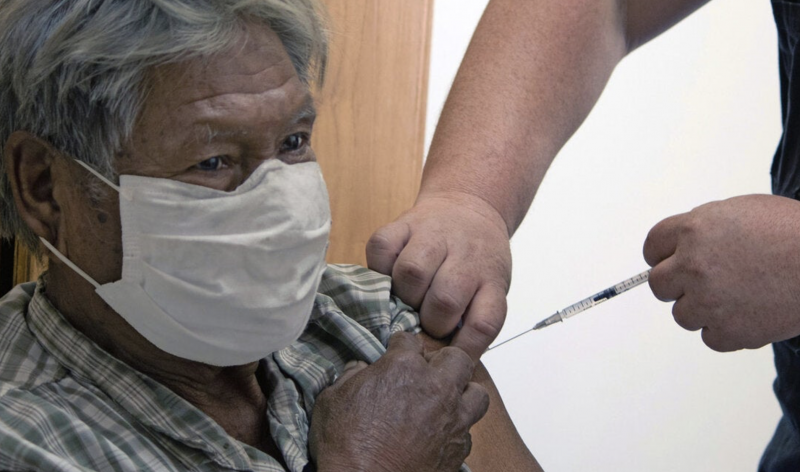
PAHO Director urges countries to prioritize hard-hit indigenous communities in COVID-19 pandemic responses
Vaccination, Communicable Diseases
August 16, 2021
Washington, D.C., Aug. 4, 2021 (PAHO)— Pan American Health Organization Director Carissa F. Etienne reported that 617,000 indigenous people have been infected with COVID-19 in the Americas and urged countries to prioritize the hard-hit communities.
“It’s likely that many more have been infected, but we may not know it because they have struggled to get the COVID care they deserve,” she said during her weekly media briefing. She added that “nearly 15,000 (indigenous people) have died from COVID complications since the start of the pandemic.” The statistics are based on data from several countries.
In advance of International Day of the World's Indigenous Peoples, observed August 9, Dr. Etienne noted that the pandemic has exacerbated inequalities in the Americas, adding that most indigenous peoples lack the financial and social safety nets to ensure they can continue to provide for their families and communities, even when they’re sick.
Many of our indigenous peoples live in remote and isolated areas where a clinic or a doctor may be many kilometers or days away. Even those who live in urban centers still face invisible barriers – like language, stigma, and poverty – that can keep health care out of reach,” she said.
Countries should engage indigenous groups in the COVID-19 response and ensure that health workers are sensitive to the needs and languages of indigenous communities, and “respect the tradition of ancestral medicine still practiced by many of our indigenous peoples,” Dr. Etienne urged.
She noted that 17 countries in the Americas have listed indigenous peoples as a priority group for COVID vaccinations and vaccination campaigns are underway in those and other countries.
“So far, more than 134,000 indigenous people have been fully vaccinated across Guatemala and more than 312,000 have completed their COVID-19 vaccinations in Brazil. But we don’t have data from every country,” Dr. Etienne said.